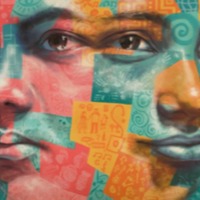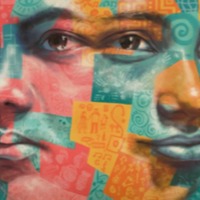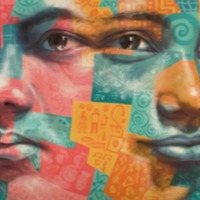
Someone offered me a program to work abroad, in Malaysia. Eventually I was enticed. I will admit frankly that I was enticed by the large sum of money. I left without a passport. I met with an agent in Jakarta. They offered me a passport of a person who resembles me. They said that I didn’t need to undergo medical screening. I didn’t need to do anything, there is already a passport of a person who looks like me. I asked them if this would create problems, and they said no. “You just relax, you will be going overseas.” I was stupid to accept their offer. I am speaking frankly, I am a stupid person. So I went. I departed on the 15th of January at three in the afternoon.
There were nine of us who departed. To keep the story short, the other people were already assigned to employers, but I was not, along with two other older workers. Us older workers were then placed at the agent’s house. We were not placed with employers but were sent to a hotel and told to become masseurs.
I haven’t even set foot in a hotel before, and now suddenly I was being told to work as a masseur. Who was I going to massage? I was confused. So I said, rather than me becoming a masseur, it would be better if I return to Indonesia. I said that to the agent who was Indonesian. The agent came and told me that I was going to be placed with a friend of his. In fact I again went into the lion’s mouth, the friend turned out to be a pimp.
I was placed under the pimp. So—I am embarrassed to tell this story—we were held captive in room guarded by four bodyguards, and we were not allowed to go outside. There were many—excuse me—whores there. At night there was a crowd. Many were smoking, dancing wearing tight clothes, and all of them were Indonesian girls. From what I observed, many came from Cirebon and Indramayu.
Because I was the oldest, the pimp entered my room and grabbed my hair while I was praying. He said “You have brought me bad luck.” So I took the initiative to escape at three in the morning. I fled at three o’clock in the morning from the pimp’s house at the Miri district in East Malaysia. I ran to a police station. To cut the story short, I arrived at the station and the police handed me over to immigration. After that I was offered a job. They gave me a choice, be jailed for three months or work. I chose to work, because I did not want to go to jail, I did nothing wrong. So they told me to work. The police escorted me to a bus terminal in east Malaysia, and I was given work selling pastries for four months.
Maybe partly because I am old, and was exposed to the sun and rain, I contracted a fever and was ill for three days. I was not given any medication and was not offered anything. Suddenly I was slapped by my employer two times with force. I said, please don’t hit me, I am sick. I am not feigning this. I was then hit again on my body. I got up in my nightgown and pajama pants. I gathered my blanket and he ripped open my bag. He did not open the sipper, but ripped it open. He ripped it open, then pushed me outside.
I was really hurt being called a dog. I was very hurt being told that Indonesians are like dogs. I was hurt. I cannot forget it. I was hurt being called a dog. I am a Moslem and I was called a dog, told me that I should eat dirt. This is something that I cannot get out of my ears, I still hear it. I was very insulted.
Wherever I am, I am very angry with my agent. I was very hurt, being thrown away with my torn bag, with all my clothes in a mess.
Aulia told her story to International Organization for Migration (IOM) affiliates at a shelter in Jakarta, Indonesia, in November 2005.


